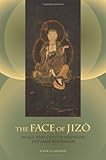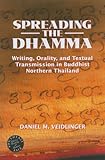Support H-Net | Buy Books Here | Help Support the NBN and NBN en Español on Patreon | Visit New Books Network en Español!
- African Studies
- African American Studies
- American Politics
- American Studies
- American South
- American West
- Asian American Studies
- Australian and New Zealand Studies
- British Studies
- Canadian Studies
- Caribbean Studies
- Central Asian Studies
- Chinese Studies
- East Asian Studies
- Eastern European Studies
- European Politics
- French Studies
- German Studies
- Iberian Studies
- India Studies
- Indian Ocean World
- Iranian Studies
- Irish Studies
- Israel Studies
- Italian Studies
- Japanese Studies
- Korean Studies
- Latino Studies
- Latin American Studies
- Mexican Studies
- Middle Eastern Studies
- Native American Studies
- Pacific Studies
- Polish Studies
- Russian and Eurasian Studies
- Southeast Asian Studies
- South Asian Studies
- Turkish Studies
- Ukrainian Studies
- Western European Studies
- World Affairs
- Animal Studies
- Anthropology
- Archaeology
- Business, Management, and Marketing
- Media
- Critical Theory
- Disability Studies
- Drugs, Addiction and Recovery
- Education
- Economics
- Finance
- Geography
- Gender Studies
- Genocide Studies
- Higher Education
- Human Rights
- Journalism
- Language
- Law
- LGBTQ+ Studies
- National Security
- Philanthropy
- Philosophy
- Policing, Incarceration, and Reform
- Political Science
- Politics & Polemics
- Public Policy
- Sex, Sexuality, and Sex Work
- Sociology
- Sound Studies
- Sports
- Urban Studies
- Big Ideas
- Celebration Studies
- Co-Authored
- Cover Story
- Historical Materialism
- History Ex Silo
- Interpretive Political and Social Science
- Invested Investor
- Landscape Architecture
- Late Antiquity
- Mormonism
- NBN Book of the Day
- NBN Seminar
- Postscript: Conversations on Politics and Political Science
- Practical History
- Preparing for Life After Grad School
- Psychology and Climate Change
- Syriac Studies
- The Chair: In The Room at the Fed
- New Books with Miranda Melcher

Sep 2, 2011
The Making of Buddhist Modernism
Summary
For many Asian and Western Buddhists today, Buddhism means meditation and an embrace of the world's interdependence. But that's not what it meant to Buddhists in the past; most of them never meditated and often saw interdependence (or dependent origination) as something fearful to be escaped. Many scholars, especially recently, have told this story of the transition from pre-modern to modern Buddhism, but often with no other purpose than to dismiss modern Buddhism as inauthentic, a departure from the "real" Buddhism of ritual chanting and sacred relics. David McMahan's book The Making of Buddhist Modernism (Oxford University Press, 2008) tells the story of Buddhist modernism in a balanced way, one that acknowledges its novelty yet remains sympathetic to its concerns and interests. McMahan, who is a professor of religious studies at Franklin and Marshall College, theorizes not only Buddhism but also modernity. Using Charles Taylor's account of modern life, he explores the forces that changed Buddhism in recent centuries. McMahan discusses typically cited factors (e.g., the emphasis on meditation, the belief in science), but also seldom mentioned (though important) elements of Buddhist modernism like affirmations of nature, interdependence, and everyday life.





































































































